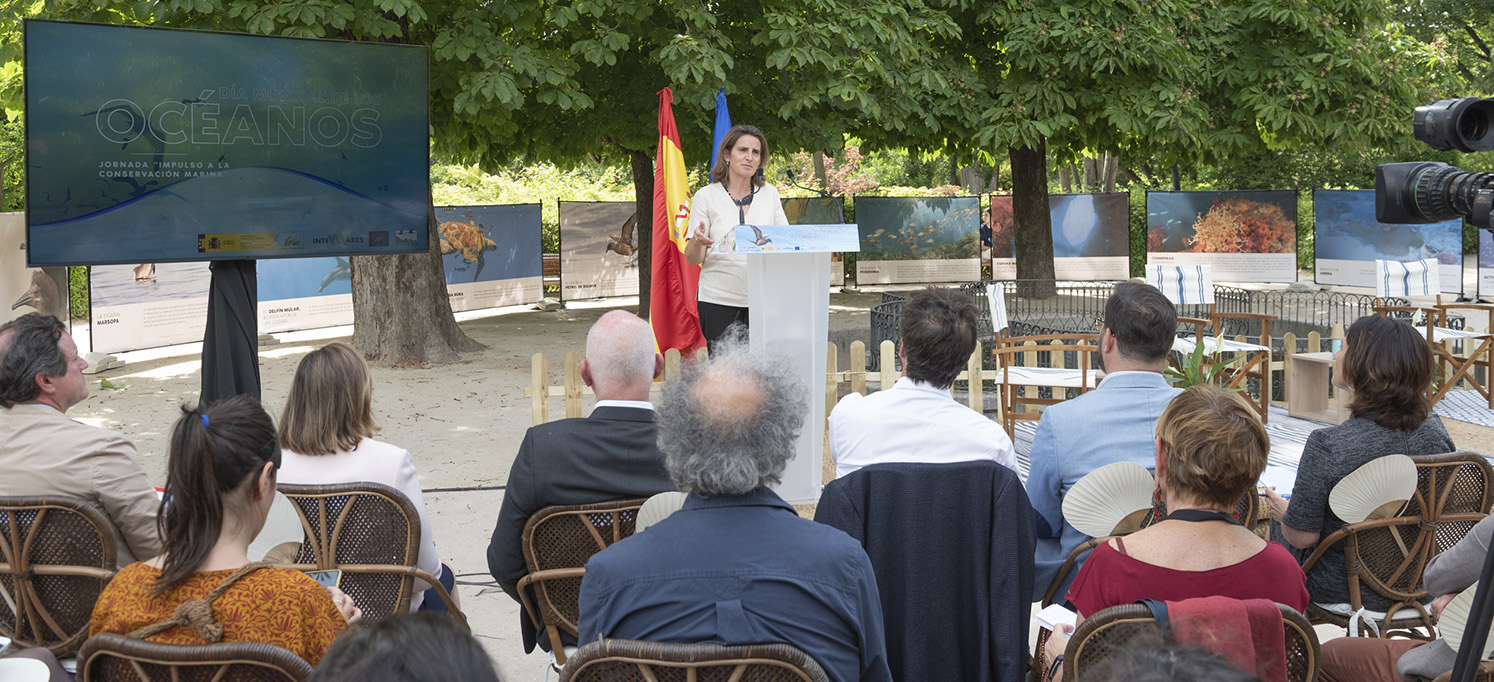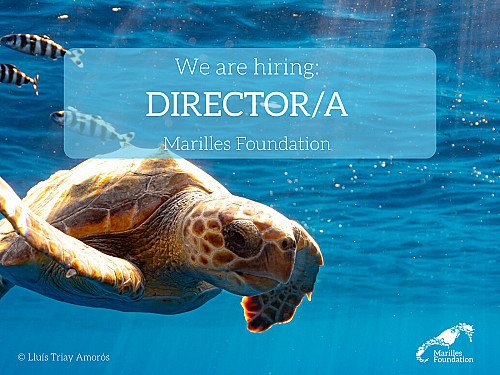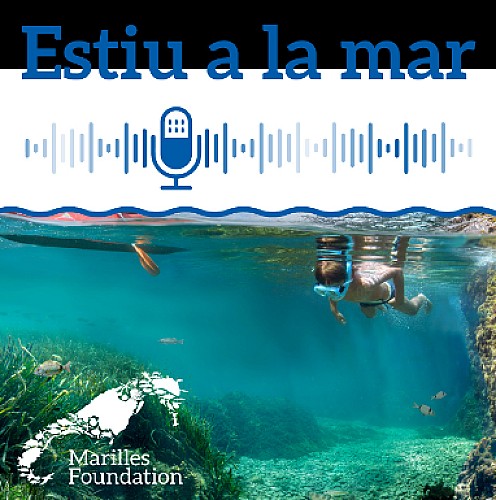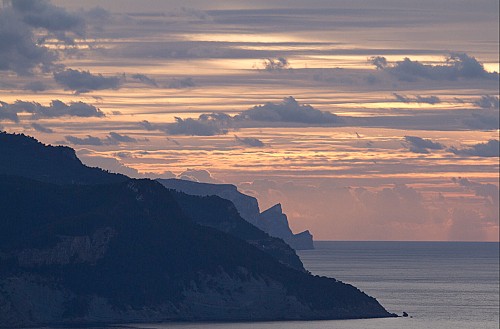On World Oceans Day, Marilles Foundation is calling for more funding for marine conservation in the Balearic Islands and proposes a New Blue Pact, an investment programme to strengthen the economy by improving the marine environment.
On World Ocean Day, Marilles Foundation has launched a message calling for more funding for the conservation of the marine environment and asking for greater ambition in the protection of our seas and coasts.
During his speech at the Boosting Marine Conservation conference – organised by the Biodiversity Foundation and the Ministry of Ecological Transition (MITECO) at the Botanical Gardens in Madrid on 8 June, with the participation of the Third Vice President and Minister for Ecological Transition and the Demographic Challenge, Teresa Ribera – the director of Marilles Foundation, Aniol Esteban, stressed the need to increase funding for marine conservation as a strategy to strengthen key sectors for the Balearic Islands, such as tourism and fishing, and to improve our resilience to climate change.
"Seas and coasts in a good state of conservation are essential for economic prosperity and human well-being and to respond to the climate challenge. The future of important industries for the Balearic Islands such as tourism, fishing and the nautical sector is strongly linked to the conservation of the marine and coastal environment. The sea gives us everything, but we invest very little in its protection. There is a great asymmetry between the current investment in marine conservation by the public and private sectors and the benefits it brings to our economy and citizens. European funds offer us an opportunity to correct this gap," says Aniol Esteban, director of Marilles Foundation.
He adds: "The time has come to make a qualitative leap in marine conservation and show a firm commitment with a timetable and funding. We have less than 8 years to meet the target of protecting at least 30% of our seas, and having at least 10% highly protected. To achieve this target, Spain must increase its current highly protected marine area by a factor of 50. We know that for every €1 invested in marine protected areas, €10of benefits are generated. Investing in marine conservation pays off. The Balearic Islands can be a benchmark in marine conservation, but we must want it and believe in it, and above all, we must invest the necessary resources to achieve it."
It is in this context that Marilles Foundation proposes a Blue New Deal, an investment programme to reactivate our economy while improving our marine environment. It has the following actions as its main axes:
- Expansion and strengthening of marine protected areas to reach a minimum of 30% marine protected area by 2030 and a minimum of 10% highly protected marine area.
- Transformation of the fishing fleet into a sustainable, low-impact, economically viable fleet.
- Conservation and recovery of vulnerable species and habitats, such as Posidonia meadows, sharks, rays, turtles, seabirds, and marine mammals.
- Elimination of pollution in our waters, both from waste and plastics, as well as from poorly treated water.
- Decarbonisation and adaptation of our coastline to the impacts of climate change.
- Development of a marine environmental education offer with employment opportunities for young people.
- Reinforcement of marine research programmes without which it will not be possible to manage our marine environment efficiently.
Economic value
- The results of the marine natural capital study– carried out by ECOACSA and CBBA on behalf of Marilles Foundation in the framework of the EU Interreg MPA NETWORKS project – show that the Cala Rajada-Llevant marine reserve (east of Mallorca) generates €10 profit for every €1 invested.
- The volume of carbon stored by each hectare of Posidonia 1 m thick is about 1,600 tonnes of CO2, an amount equivalent to the CO2emitted by 1,000 carsin a year. The Balearic archipelago has 650 km2of Posidonia- half of all Posidonia in Spanish waters. This area absorbs 7% of the emissions emitted by the Balearic Islands.
- A study by the University of the Balearic Islands (UIB) funded by Marilles Foundation in 2019 estimates the value of the Balearic Posidonia meadows at €622 million. This value includes coastal protection (€326.9 million), carbon sequestration and storage (€205 million) and water quality (€85 million), but does not include other services related to fisheries production and biodiversity conservation.
Further information
https://marilles.org/en/post/10--de-beneficio-por-cada-euro-invertido-en-la-reserva-
https://marilles.org/en/post/la-posidonia-en-calvia-miles-de-anos-prestando-servicio





